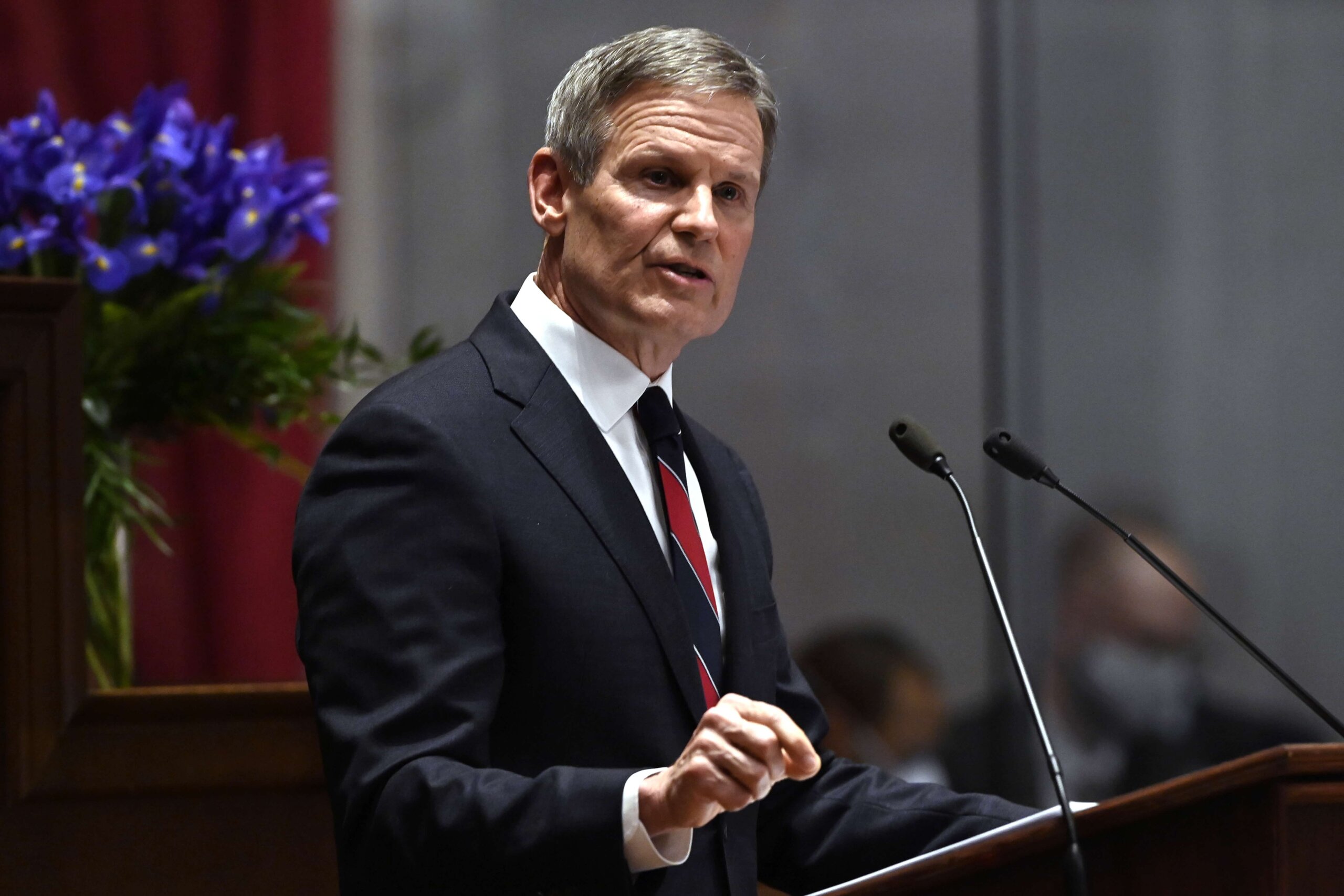Tennessee Gov. Bill Lee quietly signed a bill last week intensifying the state’s laws targeting trans student athletes who wish to play in alignment with their lived gender.
On Friday, Lee rubber stamped House Bill 1895, which compels the Tennessee Department of Education to withhold funds from schools that refuse to verify a student’s “biological sex” in order to determine athletics eligibility. The bill text does not state how much state funding school districts could lose if they fail to comply with the regulations, which go into effect July 1.
The Republican governor did not issue a public statement outlining his reasons for signing the bill, even after approving a separate anti-trans sports ban last year. That law, known as Senate Bill 228, requires all students in middle and high school to play on sports teams that align with the biological sex stated on their original birth certificate.
Of the 15 U.S. states that have signed anti-trans sports bans into law, SB 228 was one of the most sweeping. LGBTQ2S+ advocates noted that its framing would apply to all trans students, whereas the majority of bills targeting trans athletics participation single out trans girls. Critics claimed SB 228 could result in trans boys like Texas’ Mack Beggs, who won consecutive women’s wrestling titles, being forced to compete against girls.
But proponents of HB 1895 felt the prior legislation didn’t go far enough. State Rep. John Ragan, who co-sponsored the bill in the Tennessee House, claimed that SB 228 lacked “teeth” and that there was no real mechanism in place to enforce it.
“There were no consequences if someone chose to ignore what we passed last year,” he said in comments reported by local newspaper The Tennessean.
“It is hard to imagine a worse combination—cutting school funds for not discriminating.”
State Rep. Joey Hensley, a co-sponsor of HB 1895, added that the legislation is intended to encourage a “level playing field for all of our female athletes.” As with other supporters of anti-trans proposals across the country, the GOP lawmaker could not name an example of a trans athlete who has caused issues in Tennessee, but said the bill’s backers “have seen it happening in other states.”
“I don’t know of a personal example in Tennessee, but we don’t want it to happen in Tennessee and for our female athletes to have unfair competition,” he said.
HB 1895 has come under heavy fire from LGBTQ2S+ advocates, who noted that Tennessee passed at least five laws targeting queer and trans people last year alone, the most of any U.S. state. In 2021, Lee also signed measures limiting LGBTQ2S+ education in schools and requiring businesses to hang signs warning the public if they permit trans people to use the restroom that aligns with their gender identity.
“It is hard to imagine a worse combination—cutting school funds for not discriminating,” said Chris Sanders, executive director of the Tennessee Equality Project, in a statement. “To say that trans participation in school sports is a reason to threaten school districts is deeply stigmatizing and built on misinformation.”
The Human Rights Campaign further noted that Tennessee is likely to face federal action from the Biden administration, which has joined lawsuits challenging anti-trans legislation in Arkansas and West Virginia.
But HB 1895 isn’t the only anti-LGBTQ2S+ legislation being pushed by Tennessee this year. Of the nation-leading 31 discriminatory bills put forward in 2022, proposals include HB 2633 and SB 2153—which, respectively, ban schools from disciplining teachers who refuse to use trans students’ correct pronouns, and prohibit trans female athletes from playing women’s sports in college.
State Sen. Mike Bell, a sponsor of HB 2633, said his legislation protects free speech.
“If pronouns express a message, you can’t compel somebody to express a message,” he said in comments reported by the Chattanooga news affiliate WTVC. “That’s what this is about. This is about compelling a message they may or may not agree with.”
LGBTQ2S+ advocates countered that the continued attacks on Tennessee’s most vulnerable will only cause further damage to communities already in crisis.
“This bill is only an attempt to continue the conversation to publicly ostracize, demonize and harm transgender children who only want to play,” said Kate Oakley, state legislative director for the Human Rights Campaign, in comments to The Tennessean.
SB 2153 is headed to Lee’s desk after it passed the Tennessee House on April 25 by a 70-14 vote, with the college sports bill having already passed the state Senate earlier this month by an even greater 27-4 margin. HB 2633 has yet to clear the Senate but was also approved by the House on Monday by 67 to 25. Lee is extremely likely to sign both bills into law if he has the opportunity.


 Why you can trust Xtra
Why you can trust Xtra


